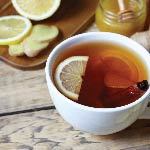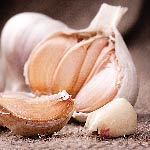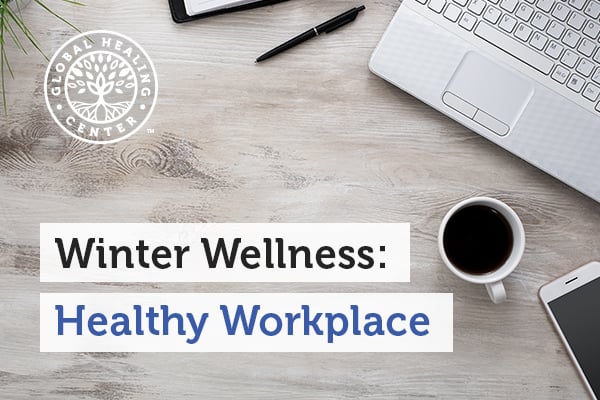
The end of the year is a stressful time at work, with deadlines to meet, coworkers on vacation, and new projects and priorities to start thinking about. It's also the time of year when sickness goes around, especially at the office. The stresses of life paired with a tired and taxed immune system can slow down anyone. Fortunately, following a few simple steps can help keep you well this winter.
Cold and Flu Prevention in the Office
Every year, flu season costs the American people over $4.5 billion in medical care, over 110 million work days,[1] and an estimated $87 billion in lost productivity.[2] Between December and March, you have a better chance catching the flu or common cold[3] — and so do your coworkers. It’s more difficult to keep yourself from getting sick at the office when your coworkers are coughing and sneezing right next to you or, worse, on you. Though you might feel inclined to put on a hazmat suit, you don’t need to go quite that far. A little knowledge and prevention will do the trick.
First and foremost, avoid close contact with anyone who has been coughing or sneezing. Viral particles from the common cold (rhinoviruses) or flu (influenza virus) can travel farther distances when the weather is cold and dry.[4]
Avoid Contact That Transmits Germs, Microbes, and Viruses
Avoid sharing pens, remotes, phones, and keyboards with anyone who isn't feeling well. Cold and flu viruses can remain infectious for up to three days on surfaces like desks, doorknobs, and light switches.[5] After touching these surfaces, avoid touching your face or eyes and wash your hands with soap and water as soon as possible. After washing your hands, dry them with a paper towel and turn the tap off using the paper towel. Disinfect surfaces with natural cleaners like diluted essential oils. If you have to grab door handles or light switches, use your sleeve or a paper towel to reduce contact.
Though it’s standard professional behavior, try to minimize shaking hands with people. Your sick co-workers will understand, and new business acquaintances might even appreciate it. We cough and sneeze into our hands and they carry millions of microbes, especially the ones that cause the flu and cold.[6] If courtesy requires some form of contact, try a fist bump — it transmits about 1/10th the microbes as shaking hands.[7]
Stay Home If You Get Sick
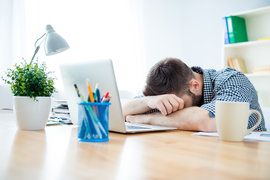
Stay home if you come down with the cold or flu — take a sick day or work from home. It’s not just selfish to go to work sick, it might actually be dangerous. People with sensitive immune systems, like pregnant women, the elderly, and children, are more prone to serious complications from the flu.[8] If you get pushback for taking a sick day, mention to your superiors that taking sick leave actually increases productivity and helps prevent the entire office from becoming infected.[9]
For the flu, the CDC recommends you stay home 3-5 days, or at least 24 hours after you no longer have a fever.[10] For colds, most people take off a day or two. One study found that the worse the cold symptoms were, the less productive respondents were. The best way to recover from the cold or flu is to rest, hydrate, and let your body heal.[11]
Make Choices To Support Overall Wellness
Good long-term lifestyle habits build the foundation of your health status. Diet, exercise, stress management, and sleep quality all affect your immune system and quality of life. For many of us, a new year offers the chance to start fresh and make good choices. You spend many of your hours at work, it only makes sense to practice healthy habits.
Poor decisions about health are easy to make when they’re convenient. Set yourself up for success by making the healthy choice the easy choice. Consistent preparation facilitates success.
Prevent Winter Weight Gain
Don’t resign yourself to the thought that winter weight gain is inevitable. Winter is usually a celebratory season and the inclement weather drives us indoors and keeps us sedentary. Invitations to happy hours, team lunches, and company holiday parties normalize overindulgence. Rich, heavy, fattening treats are ever present at home and in the office.
But it’s not simply an abundance of cake that causes weight gain. Research reveals that our sense of satiety (fullness) decreases during winter, causing us to eat more than we need.[12] It’s possible this is an evolutionary quirk that encourages us to eat more during the winter to account for calories lost due to cold exposure.[13] The brain sends signals that tell us to eat more when the weather is cold in order to generate more heat.[14]
To prevent winter weight gain, bring your lunch and snacks to work. Put a little effort into your meals and make something you’ll look forward to eating. Hearty soups and stews are filling, healthy options that will warm you up. Keep snacks like fresh fruit and nuts at your desk to keep yourself from wandering to break the break room in search of something sweet.
Switch from Coffee to Tea
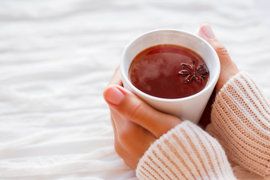
When the temperature drops, you’re more likely to grab a few extra cups of coffee than you would in the summer. More cups of coffee means more caffeine, and many of us are over-caffeinated, to begin with. Caffeine amplifies your response to everyday stress, and that’s something you definitely don’t need.
Green tea offers many benefits and has about 1/10th the caffeine of the average cup of drip coffee,[15] and many herbal teas don’t contain any caffeine at all. Next time you’re looking to warm up with a hot drink, brew some tea.
Make Sleep a Priority
Daylight savings time threw your internal clock off in the autumn and now that the sun sets at 4 pm, it feels like it’s perpetually night. This can really skew your sense of time and affect sleep patterns. The best way to make sure you get enough sleep is to set a bedtime for yourself and stick to it. Set an alert on your phone to remind yourself at night.
Of course, those late nights spent in good company with coworkers, friends, and family are a wonderful way to celebrate the winter holidays. But, if you have work in the morning, make sure to leave enough time to sleep and don’t drink too much. Adequate sleep is essential for preventing obesity[16] and a night of drinking compromises your ability to think the next day.[17] And, don’t think that overdosing on coffee will restore your functionality, either.
Dress Warmly
Bundle up when it's cold outside. It’s important to stay warm to prevent yourself from reaching for that 5th cup of coffee or the fresh, warm donuts in the kitchen. Wear a warm jacket, gloves, and a hat if you go out in cool weather. Once you're at work, there are USB-powered gadgets, such as hand and foot warmers, that can help you stay warm at your desk, especially if your office tends to stay cool.
Humidify
Nasal passages are more sensitive in dry air and it's easier to catch upper respiratory infections like the cold and flu.[18] A small humidifier will keep your airways moist and comfortable. You can also add a few drops of tea tree oil or eucalyptus oil to the humidifier. Research reveals that aerosolized tea tree and eucalyptus oil inactivates some viruses within 5 to 15 minutes.[19]
Points to Remember
Maintaining your health at work requires a little more preparation and planning during winter, but it’s not difficult. Stay away from anyone not feeling well, avoid shaking hands, and wash your hands to protect yourself from catching any bugs. Carry your healthy workplace habits home. Bring healthy, warming foods you’ll enjoy eating to work, reduce your caffeine consumption, and make sure you’re getting adequate sleep at night. Follow these guidelines and you’ll be well on your way to a healthy new year.
References (19)
- CDC. “SEASONAL INFLUENZA (FLU) IN THE WORKPLACE.” Centers for Disease Control and Prevention. CDC, 18 Feb. 2011. Web. 1 Dec. 2016.
- Molinari, NA, et al. “The Annual Impact of Seasonal Influenza in the US: Measuring Disease Burden and Costs.” Vaccine. 25.27 (2007): 5086–96. Web. 1 Dec. 2016.
- “Summary of the 2015-2016 Influenza Season.” Centers for Disease Control and Prevention. CDC, 22 Nov. 2016. Web. 1 Dec. 2016.
- Noti, John D., et al. “High Humidity Leads to Loss of Infectious Influenza Virus from Simulated Coughs.” PLoS ONE 8.2 (2013): e57485. Web.
- “The Filthy Office and Infections: Is your desk cleaner than your kitchen table or the office toilet?” Boston, MA: Tufts University, 2014. Web. 1 Dec. 2016.
- Saldmann, Frédéric. Wash Your Hands: Dirty Truth About Germs, Viruses and Epidemics...and the Simple Ways to Protect Yourself in a Danger. Weinstein Books, 20 Dec. 2008. Ebook. 1 Dec. 2016.
- LeWine, Howard. “Fist bump better than handshake for cleanliness - Harvard health Blog.” Health. Harvard Health Blog, 29 July 2014. Web. 1 Dec. 2016.
- Kunisaki, Ken M., and Edward N. Janoff. “Influenza in Immunosuppressed Populations.” Lancet Infectious Diseases 9.8 (2009): 493–504. Web. 1 Dec. 2016.
- Barthold, Ross O, and Jason L Ford. Paid Sick Leave: Prevalence, Provision, and Usage Among Full-Time Workers in Private Industry. N.p.: U.S. Bureau of Labor Statistics, 2012. Web. 1 Dec. 2016.
- “CDC shortens stay at home for those with flu symptoms.” CIDRAP, 6 Aug. 2009. Web. 1 Dec. 2016.
- CDC. “Common Colds: Protect Yourself and Others.” Centers for Disease Control and Prevention. CDC, 8 Feb. 2016. Web. 1 Dec. 2016.
- De Castro, JM. “Seasonal Rhythms of Human Nutrient Intake and Meal Pattern.” Physiology & behavior. 50.1 (1991): 243–8. Web. 1 Dec. 2016.
- Langeveld, M, et al. “Mild Cold Effects on Hunger, Food Intake, Satiety and Skin Temperature in Humans.” Endocrine Connections 5.2 (2016): 67–73. Web. 1 Dec. 2016.
- Marriott, Bernadette M. Effects of Heat on Appetite. N.p.: NCBI Bookshelf, 1993. Web. 1 Dec. 2016.
- “Caffeine Content Of Popular Drinks.” University of Utah. n.d. Web. 1 Dec. 2016.
- Taheri, S. “The Link Between Short Sleep Duration and Obesity: We Should Recommend More Sleep to Prevent Obesity.” Archives of Disease in Childhood 91.11 (2006): 881–884. Web. 1 Dec. 2016.
- Stephens, Richard, et al. “A Review of the Literature on the Cognitive Effects of Alcohol Hangover.” Cognitive and Behavioural Effects 43.2 (2008): 163–170. Web. 1 Dec. 2016.
- Arundel, A V, et al. “Indirect Health Effects of Relative Humidity in Indoor Environments.” Environmental Health Perspectives 65. (1986): 351–361. Web. 1 Dec. 2016.
- Usachev, Evgeny V., et al. “Antiviral Activity of Tea Tree and Eucalyptus Oil Aerosol and Vapour.” Journal of Aerosol Science 59. (2013): 22–30. Web. 1 Dec. 2016.
†Results may vary. Information and statements made are for education purposes and are not intended to replace the advice of your doctor. If you have a severe medical condition or health concern, see your physician.



